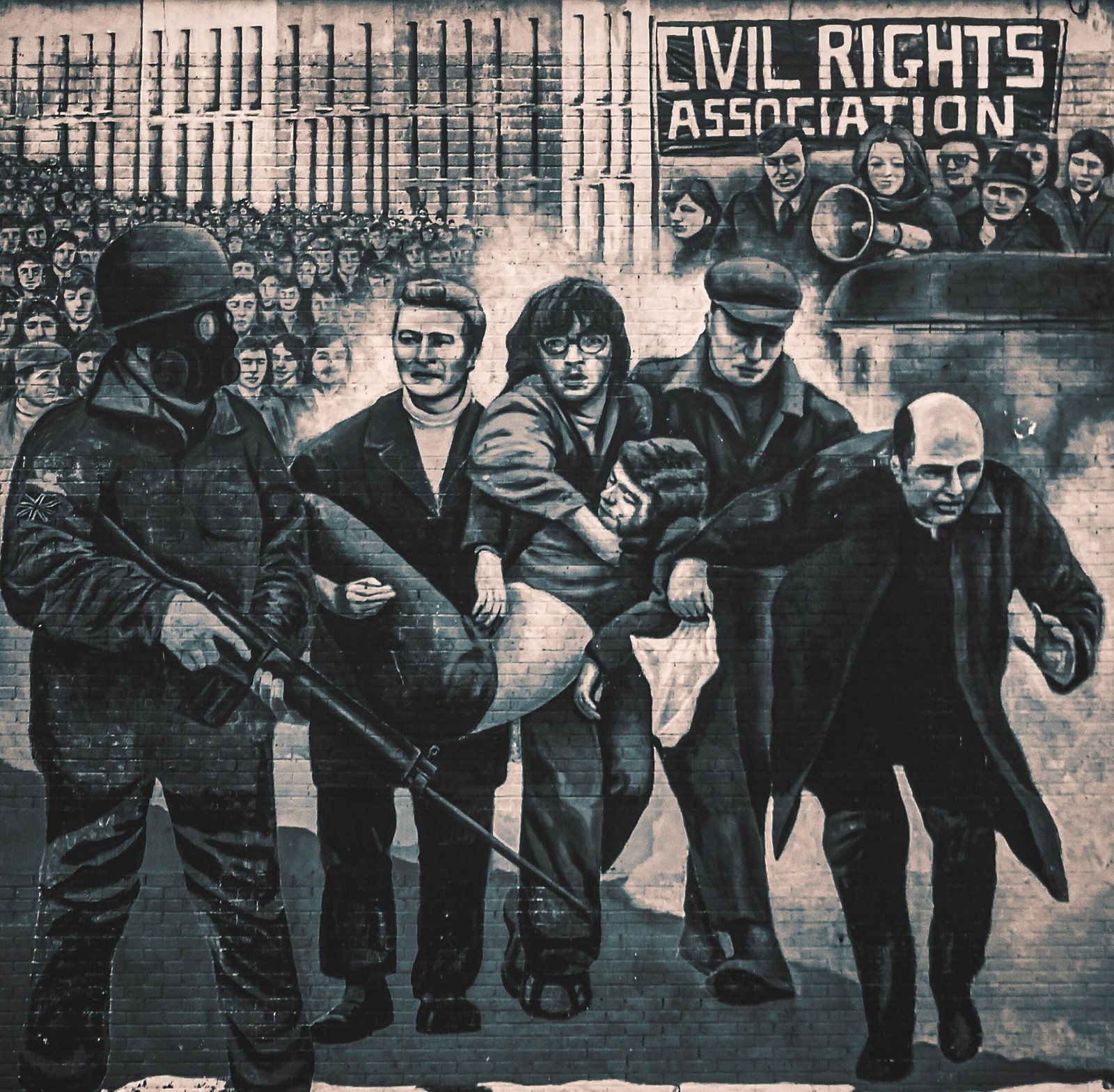January 30, 1972, will forever be remembered as one of the darkest days in Northern Ireland’s history. This fateful day, known as “Bloody Sunday,” witnessed a horrific incident that left a lasting impact on the region. British troops, deployed to maintain order during the ongoing conflict, opened fire on unarmed civil rights protesters in Derry, resulting in the death of 13 people and leaving many others injured.
The events of Bloody Sunday took place against the backdrop of The Troubles, a period of intense political and sectarian violence in Northern Ireland. The conflict, rooted in the deep divisions between the predominantly Catholic nationalists and the largely Protestant unionists, had already claimed numerous lives and caused immense suffering.
The civil rights movement, inspired by the broader movements for equality and justice around the world, had gained momentum in Northern Ireland. On that fateful Sunday, thousands of protesters gathered in Derry to demand an end to the discriminatory practices and to advocate for the rights of the Catholic minority.
The situation quickly escalated as clashes broke out between the protesters and the British Army. The troops, armed and in full riot gear, were tasked with maintaining order and ensuring the safety of the public. However, what followed was a tragic and disproportionate use of force that shocked the world.
Eye-witness accounts and subsequent investigations revealed a harrowing sequence of events. British soldiers fired upon the unarmed protesters, leaving a trail of death and destruction in their wake. Thirteen innocent civilians, including a 17-year-old boy, were fatally shot, and many others were wounded.
The immediate aftermath of Bloody Sunday saw widespread outrage and condemnation, not just in Northern Ireland but across the globe. The incident further inflamed tensions and deepened the divide between communities. The Catholic nationalist population felt betrayed and targeted, while the Protestant unionist community saw the actions of the British Army as necessary for maintaining law and order.
The British government initially defended the actions of the soldiers, claiming they had come under attack and were responding to a perceived threat. However, the official narrative was met with skepticism and disbelief. The families of the victims, along with human rights organizations and political leaders, demanded a thorough investigation into the events of that day.
Years later, in 2010, the Saville Inquiry, a comprehensive investigation into Bloody Sunday, concluded that the actions of the British Army were “unjustified and unjustifiable.” The report acknowledged that the protesters were unarmed and posed no threat to the soldiers. It also highlighted the failures in command and control that led to the tragic outcome.
The findings of the Saville Inquiry brought a sense of closure to the families of the victims, who had fought tirelessly for justice for their loved ones. The British government issued an official apology for the events of Bloody Sunday, acknowledging the wrongs committed and expressing deep regret for the loss of innocent lives.
The impact of Bloody Sunday on the Northern Ireland conflict cannot be overstated. The incident further polarized communities and fueled a cycle of violence that would continue for years to come. It became a rallying cry for those seeking justice and an end to the violence.
Today, the memory of Bloody Sunday serves as a reminder of the need for reconciliation and healing in Northern Ireland. The region has made significant progress in the peace process, with the Good Friday Agreement of 1998 providing a framework for political stability and power-sharing.
However, the wounds of the past are not easily forgotten, and the legacy of Bloody Sunday continues to shape the collective memory of Northern Ireland. The annual commemoration of the event serves as a solemn reminder of the lives lost and the ongoing quest for truth and justice.
References:
- BBC – Bloody Sunday: What happened on 30 January 1972?
- The Guardian – Bloody Sunday report: Saville inquiry key findings
- IrishCentral – Bloody Sunday (1972): A day that changed Ireland forever
SEO Excerpt:
January 30, 1972, marked one of the darkest days in Northern Ireland’s history, known as “Bloody Sunday.” British troops opened fire on unarmed civil rights protesters in Derry, killing 13 people and injuring many others. This tragic event intensified the Northern Ireland conflict, leading to increased violence and contributing significantly to the decades-long period known as The Troubles. Learn more about the events of Bloody Sunday and its lasting impact on Northern Ireland.

